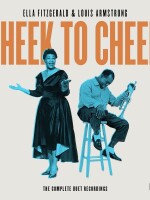TERRY GROSS, HOST:
This is FRESH AIR. You can count our music critic Lloyd Schwartz among the many music lovers who consider Artur Schnabel the most insightful classical pianist who ever recorded. Schnabel, who died in 1951, was Austrian, and most of his recordings were made in England. But Sony has now released a two-CD set of the studio recordings he made in America. Here's Lloyd's review.
(SOUNDBITE OF ARTUR SCHNABEL PERFORMANCE OF BEETHOVEN'S "PIANO CONCERTO NO. 5 IN E-FLAT")
LLOYD SCHWARTZ, BYLINE: Artur Schnabel began making studio recordings in 1932. Although he had been reluctant to record, once he set his mind to it, he began with one of the most ambitious recording projects of all time - the first complete set of Beethoven's 32 piano sonatas and five piano concertos. Some of us think these performances have never been surpassed.
Living in America during World War II, Schnabel's recording career diminished mainly because of a notorious strike called by the musicians' union, although he continued to make noncommercial V-Discs for our troops overseas. But in 1942, just before the two-year strike went into effect, he made his only commercial recordings in America.
For RCA Victor, he recorded new versions of two late Beethoven sonatas, the last two Beethoven concertos and a set of Schubert impromptus. These have all just been issued on a new set by Sony. All these recordings are extraordinary. But the big news is the Schubert, which we don't know why Schnabel never approved for release. So these marvelous Schubert performances are now available for the very first time.
(SOUNDBITE OF ARTUR SCHNABEL PERFORMANCE OF SCHUBERT'S "4 IMPROMPTUS, OP. 90, D. 899: NO. 2 IN E-FLAT: ALLEGRO")
SCHWARTZ: However many times in his career Schnabel played these pieces, each of these recordings has an extraordinary freshness and spontaneity. Not a single note is on automatic pilot. At every moment, you feel him having a living conversation with the music, deeply felt or deeply playful.
Schnabel was known for the occasional wrong note, but that's partly because these recordings were made before the use of tape when even a single note could be spliced in from another take. These studio recordings are really like live performances, and this is particularly true of the set of Schubert impromptus, a really appropriate name in this case, where so many different moods and emotions surface sometimes simultaneously in even the briefest passage.
(SOUNDBITE OF ARTUR SCHNABEL PERFORMANCE OF SCHUBERT'S "4 IMPROMPTUS, OP. 90, D. 899: NO. 1 IN C MINOR: ALLEGRO MOLTO MODERATO")
SCHWARTZ: One of the most moving passages in these recordings is the slow movement of the Beethoven fourth piano concerto. Here, the orchestra is an image of ruthlessness, rudeness and brutality while the piano is the calming, consoling spirit. One traditional analogy for this movement is Orpheus pacifying the wild beasts with his lyre.
(SOUNDBITE OF ARTUR SCHNABEL PERFORMANCE OF BEETHOVEN'S "PIANO CONCERTO NO. 4 IN G MAJOR, OP. 58")
SCHWARTZ: This is music that depicts the triumph of tenderness, of art over brute force. Artur Schnabel captures this with heart-rending sensitivity. In a brutal world, isn't this the music we most need to hear?
GROSS: Lloyd Schwartz teaches in the MFA creative writing program at the University of Massachusetts Boston. He has a new book of poems called "Little Kisses." He reviewed "Artur Schnabel: The RCA Victor Recordings."
Tomorrow on FRESH AIR, my guest will be Ariel Levy, a New Yorker writer and author of the memoir "The Rules Do Not Apply." The centerpiece of the book is her miscarriage, which she had alone in a hotel room when she was on assignment in Mongolia and five months pregnant. Levy won a National Magazine Award for her New Yorker article about her miscarriage. I hope you'll join us.
FRESH AIR'S executive producer is Danny Miller. Our technical director and engineer is Audrey Bentham. Our associate producer for online media is Molly Seavy-Nesper. Roberta Shorrock directs the show. I'm Terry Gross.
(SOUNDBITE OF MUSIC) Transcript provided by NPR, Copyright NPR.

